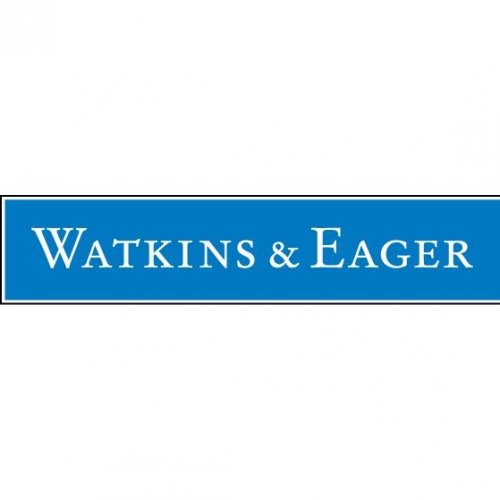Best Sanctions & Export Controls Lawyers in Birmingham
Share your needs with us, get contacted by law firms.
Free. Takes 2 min.
List of the best lawyers in Birmingham, United States
About Sanctions & Export Controls Law in Birmingham, United States
Sanctions and export controls law governs how goods, technology, software, and services can be transferred across national borders, especially where restrictions apply due to U.S. government policy. These laws are intended to protect national security, promote foreign policy objectives, and control trade with certain countries, entities, and persons. Sanctions may restrict business with specific nations or groups, while export controls regulate sensitive items like defense articles, dual-use goods, and advanced technology. In Birmingham, businesses and individuals must comply with both federal regulations and relevant state-level considerations when engaging in international trade, shipping, technology transfer, or financial transactions that could touch on sanctioned or controlled items or parties.
Why You May Need a Lawyer
Sanctions and export controls regulations are complex, ever-changing, and violations can carry significant civil and criminal penalties. You may need a lawyer if you:
- Operate a business in Birmingham that exports goods, software, or technology
- Are unsure if your product is subject to U.S. export control regulations such as EAR or ITAR
- Received notice of an investigation or enforcement action from the federal government
- Were approached to do business with entities or individuals in countries subject to U.S. sanctions (such as Iran, North Korea, or Russia)
- Need to screen international customers, suppliers, or partners for prohibited party status
- Require advice on applying for licenses to export controlled items
- Are dealing with customs seizures or delays related to suspected export violations
- Need assistance developing an export compliance program for your business
- Are an academic or researcher sharing data or collaborating internationally
Lawyers who focus on this field can help you navigate these issues, minimize risk, and represent you if you face government action for non-compliance.
Local Laws Overview
Birmingham, Alabama, is subject to federal laws and regulations regarding sanctions and export controls. The most significant laws stem from several federal agencies, including:
- The Office of Foreign Assets Control (OFAC) - administers U.S. economic and trade sanctions programs
- The Bureau of Industry and Security (BIS) - enforces the Export Administration Regulations (EAR), covering dual-use items
- The Directorate of Defense Trade Controls (DDTC) - oversees International Traffic in Arms Regulations (ITAR) for defense articles and services
- U.S. Customs and Border Protection (CBP) - enforces customs regulations at ports of entry and shipment points
While Alabama state law does not create separate sanctions or export control regimes, businesses and individuals in Birmingham must comply with these federal laws and any updates enacted by the U.S. government. Local legal counsel can assist with interpreting how these dense regulations impact commercial, educational, and personal activities in the Birmingham area. Violations can result in significant fines, loss of export privileges, and even criminal prosecution.
Frequently Asked Questions
What are U.S. sanctions laws?
U.S. sanctions laws restrict or prohibit trade and financial dealings with certain countries, entities, or individuals for reasons such as national security, foreign policy, or anti-terrorism. They are primarily enforced by the Department of the Treasury's Office of Foreign Assets Control.
What are export controls?
Export controls are legal restrictions on the transfer of goods, technology, software, or services to foreign countries, persons, or entities. Controls may apply to sensitive items like military equipment, certain chemicals, or advanced technologies.
Who enforces these laws in Birmingham?
Sanctions and export control laws are federally enforced by agencies like OFAC, BIS, and DDTC. Local enforcement and compliance are carried out in cooperation with federal authorities, especially through investigations and prosecutions led by the U.S. Attorney’s Office for the Northern District of Alabama.
What penalties exist for violations?
Penalties range from monetary fines (which can be substantial) to denial of export privileges and even imprisonment for willful violations. Penalties often depend on the nature and severity of the offense.
How do I know if my business activities are subject to these laws?
If your business exports items, technology, software, or engages in international financial transactions, your activities may be subject to sanctions or export controls. Legal advice can help you conduct proper product classification and customer screening.
What is a "denied party screening"?
Denied party screening is the process of checking customers, suppliers, or partners against government lists of individuals or entities barred from certain transactions, to ensure compliance with sanctions and export control laws.
Do I need a license to export goods from Birmingham?
Some items require specific export licenses depending on their classification, destination, end-use, and end-user. An attorney or compliance specialist can determine licensing requirements.
Can educational or research activities be affected?
Yes, both academic institutions and individual researchers in Birmingham must comply, especially when sharing controlled technology or data with foreign nationals, even within the United States.
What should I do if I receive an enforcement notice?
Contact a qualified sanctions and export controls attorney immediately. Do not attempt to handle the matter without legal counsel, as your responses can have significant consequences.
Where can I find more information on these regulations?
Federal agency websites and legal resources can provide guidance, but engaging with a local lawyer knowledgeable in this area is the best source for tailored advice.
Additional Resources
- Office of Foreign Assets Control (U.S. Department of the Treasury)
- Bureau of Industry and Security (U.S. Department of Commerce)
- Directorate of Defense Trade Controls (U.S. Department of State)
- U.S. Customs and Border Protection
- Northern District of Alabama - U.S. Attorney’s Office
- Alabama District Export Council
- Export Alabama Alliance
- Local chambers of commerce and industry groups in Birmingham
Next Steps
If you believe your business, research, or personal activities in Birmingham may be subject to sanctions or export control laws, it is important to act proactively. Begin by assessing your operations to determine potential risk areas and whether you engage in international transactions or collaborations. Gather any relevant documentation about your products, services, customers, and partners.
Consult with a local attorney who practices in sanctions and export controls law for an in-depth evaluation of your compliance obligations. They can help you implement compliance programs, navigate licensing requirements, respond to government inquiries, and represent you in the event of an investigation. Staying informed, seeking legal guidance, and establishing strong compliance procedures are the best ways to avoid serious penalties and ensure lawful business operations in Birmingham, United States.
Lawzana helps you find the best lawyers and law firms in Birmingham through a curated and pre-screened list of qualified legal professionals. Our platform offers rankings and detailed profiles of attorneys and law firms, allowing you to compare based on practice areas, including Sanctions & Export Controls, experience, and client feedback.
Each profile includes a description of the firm's areas of practice, client reviews, team members and partners, year of establishment, spoken languages, office locations, contact information, social media presence, and any published articles or resources. Most firms on our platform speak English and are experienced in both local and international legal matters.
Get a quote from top-rated law firms in Birmingham, United States — quickly, securely, and without unnecessary hassle.
Disclaimer:
The information provided on this page is for general informational purposes only and does not constitute legal advice. While we strive to ensure the accuracy and relevance of the content, legal information may change over time, and interpretations of the law can vary. You should always consult with a qualified legal professional for advice specific to your situation.
We disclaim all liability for actions taken or not taken based on the content of this page. If you believe any information is incorrect or outdated, please contact us, and we will review and update it where appropriate.

















